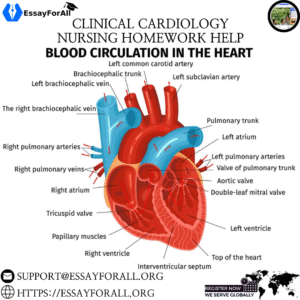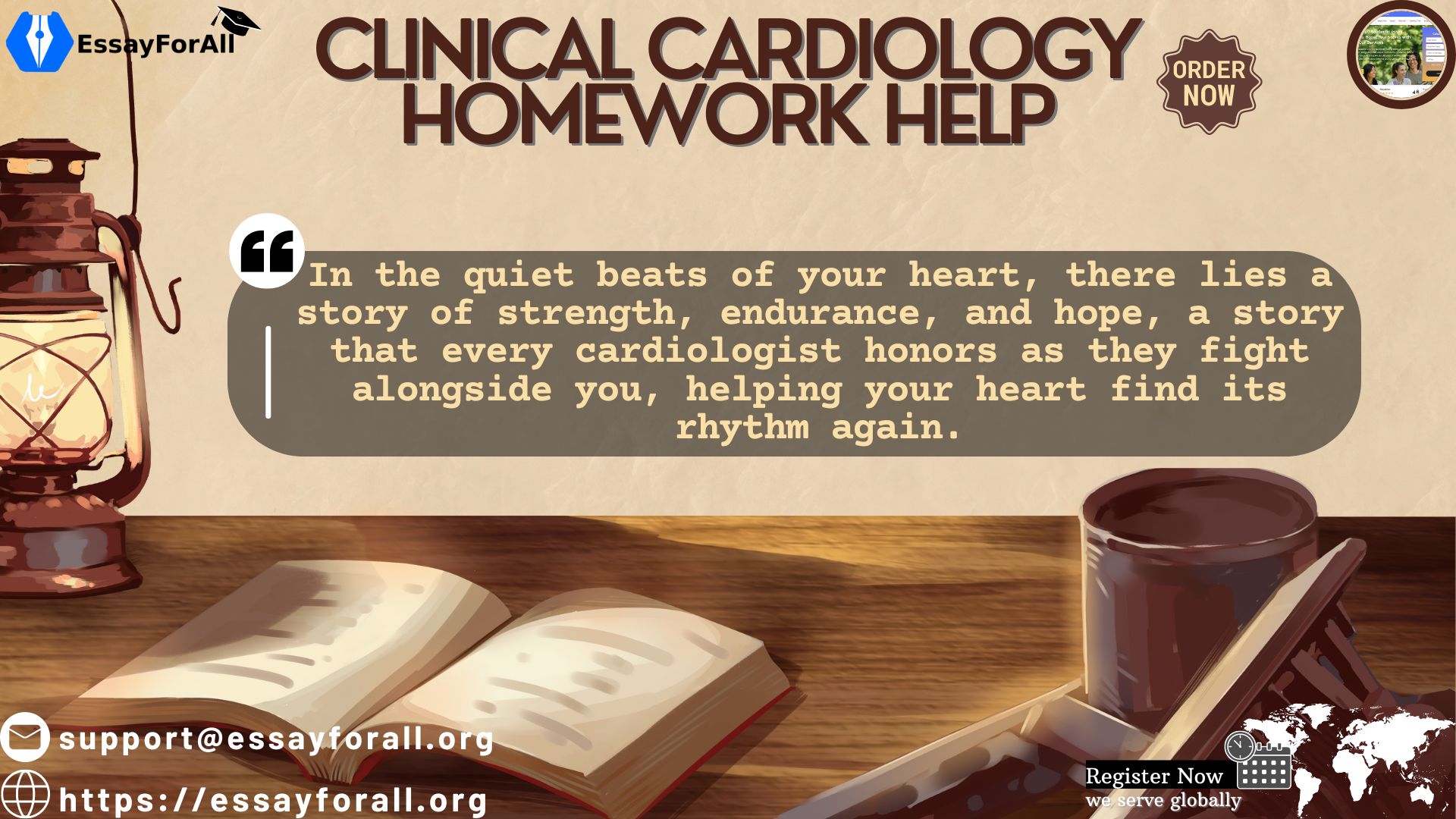Cardiac homework help can feel necessary when your cardiac nursing assignments begin stacking up faster than you can manage. You might be juggling class, placements, and a personal schedule that leaves almost no room for long written tasks. We understand that feeling. Many students tell us they know the content, yet the writing part becomes stressful. So this is where we step in to support you.
Cardiac nursing focuses on people with heart-related conditions. These include coronary artery disease, heart failure, arrhythmias, high blood pressure, recovery from valve or bypass procedures, and more. The work is specific and detailed. Most assignments in this area require you to apply reasoning, read ECG findings, connect symptoms to possible causes, and decide on care steps that match actual clinical settings.
If you have ever sat down to write and felt unsure about how to structure your response, you’re not alone.
You might think:
- How much detail should I provide?
- Should I rely on personal learning from placements or stick strictly to academic references?
- What if my lecturer wants something different than what I have understood?
These are common questions. They come up often among nursing students.

Why this coursework can feel demanding
A few things tend to come up repeatedly.
- Cardiac terminology is specific and sometimes technical.
- Lecturers often expect clear reasoning behind your decisions.
- Several assignments across units can share the same deadlines.
- Clinical practice may leave you too tired to write long papers.
- You may feel unsure about referencing correctly.
You may know the right answer clinically, yet translating it into structured written work requires time and mental clarity. After a long shift or a busy week, both can be in short supply.
Have you ever tried writing after a 12-hour placement?
It often results in staring at a screen, scrolling through research articles, and not much else.
The types of assignments we support
Our writers have backgrounds in nursing and cardiac care. So the writing reflects real clinical logic and not just theory copied from textbooks.
Common tasks we handle:
- Case study responses, such as patient admitted with chest pain and shortness of breath.
- Care plans for cardiac failure, arrhythmias, or post-surgical recovery.
- Short-answer assessments requiring precise clinical reasoning.
- Heart rhythm interpretation tasks linked to ECG readings.
- Patient education essays focused on long-term recovery and lifestyle adjustments.
- Reflection pieces on placements related to cardiac units.
For example, a student once sent a case involving a patient recovering from a bypass. They needed to explain the post-operative care priorities. Instead of only listing steps, we discussed why each action supported healing, and we tied it to simple clinical reasoning. The lecturer later commented that the explanation showed “clear involvement with real nursing thinking.” The student said it felt good to read something that made sense to them personally.
That’s the aim. To make sure the work is both academically convincing and practically realistic.
How to request support
We keep the process direct. No complicated forms.
- Send your assignment instructions.
Include marking rubrics, recommended readings, or lecturer notes if available. - Confirm the cost and make the first payment.
The cost depends on length, deadline, and complexity. - Receive your completed work.
You review it. If something needs adjustment, we revise it with no extra charge.
This approach gives you control. It keeps communication open and clear.
Why many students come to us for cardiac homework help
Some students want help only once with a difficult topic. Others reach out consistently, especially during demanding placement periods. Both are fine. You choose how often you need support.
The reasons people stay with us often sound like this:
- “The writing sounds natural and not like something copied from a template.”
- “The explanations follow real nursing logic.”
- “The deadlines are met, even short ones.”
- “There is room to request changes without difficulty.”
- “It feels easier to understand the topic after reading the completed work.”
We try to write in a way that you could read the work and say, “Yes, I could explain this if asked in class.”
A closer look at common cardiac topics
Below are frequent areas students study. You might recognise some from your own coursework.
Heart rhythms and arrhythmias
Recognising abnormal rhythms requires understanding electrical patterns and their effects. Assignments on this topic often ask you to describe what a rhythm indicates and what steps nurses might take next. Accuracy matters here, and sometimes students feel unsure about interpretation.
Preventive cardiac care
This concerns long-term management for people at risk of worsening conditions. It often involves diet discussions, exercise planning, medication routines, and stress reduction. Some assignments ask you to speak directly to patient lifestyle change in a realistic voice.
Hypertension and its link to cardiac conditions
This topic shows up in most modules. Students may be asked to explain how high blood pressure affects heart tissue over time. The challenge is expressing the idea clearly without using complex language.
Post-operative cardiac recovery
Assignments may describe care for someone returning from theatre following valve replacement or bypass surgery. You may need to mention wound care, monitoring for infection, fluid balance, and emotional reassurance. A calm and structured approach works best in writing these.
You don’t need long sentences to explain these concepts. Clarity works better than length.
Why reaching out for support makes sense
Your training is demanding. You might study, work, and have personal responsibilities. Writing may not always fit into your schedule. That doesn’t mean you are lacking commitment or ability. It means you are managing a real workload.
Asking for guidance or support can help you:
- Keep stress under control.
- Submit assignments on time.
- Maintain steady academic performance.
- Have room to rest, think, or focus on placements.
Some students use support early in the term. Others only ask for help near deadlines. Either way is fine. You decide when support is useful.
Have you ever thought you just needed someone to help you shape the first draft?
Some students tell us that once they see a structured approach, the rest of the semester gets easier.
Ready to send your assignment instructions?
If you have a cardiac nursing assignment due soon, or you simply don’t know where to begin, reach out and send the task details. We can look at them, give a clear timeline, and help you get started.
You deserve space to study in a way that doesn’t drain you.
We step in to make that possible.
Just send your brief and we continue from there.
